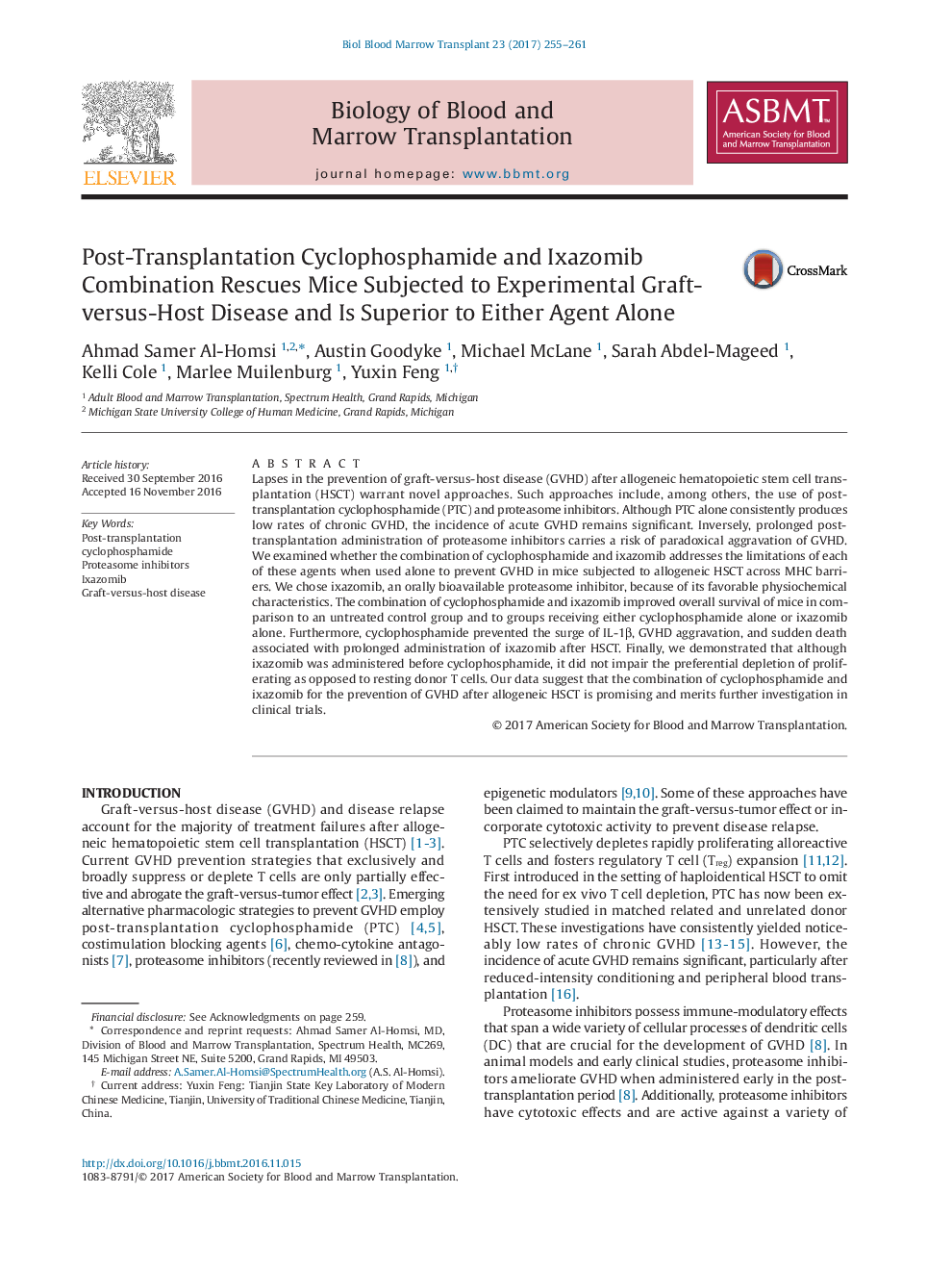| Article ID | Journal | Published Year | Pages | File Type |
|---|---|---|---|---|
| 5524244 | Biology of Blood and Marrow Transplantation | 2017 | 7 Pages |
â¢The combination of cyclophosphamide and ixazomib is effective in rescuing mice subjected to lethal graft-versus-host disease and is superior to either drug aloneâ¢Cyclophosphamide prevents graft-versus-host disease aggravation associated with prolonged administration of proteasome inhibitorsâ¢Ixazomib administration before cyclophosphamide does not prevent the depletion of proliferating donor T cells.
Lapses in the prevention of graft-versus-host disease (GVHD) after allogeneic hematopoietic stem cell transplantation (HSCT) warrant novel approaches. Such approaches include, among others, the use of post-transplantation cyclophosphamide (PTC) and proteasome inhibitors. Although PTC alone consistently produces low rates of chronic GVHD, the incidence of acute GVHD remains significant. Inversely, prolonged post-transplantation administration of proteasome inhibitors carries a risk of paradoxical aggravation of GVHD. We examined whether the combination of cyclophosphamide and ixazomib addresses the limitations of each of these agents when used alone to prevent GVHD in mice subjected to allogeneic HSCT across MHC barriers. We chose ixazomib, an orally bioavailable proteasome inhibitor, because of its favorable physiochemical characteristics. The combination of cyclophosphamide and ixazomib improved overall survival of mice in comparison to an untreated control group and to groups receiving either cyclophosphamide alone or ixazomib alone. Furthermore, cyclophosphamide prevented the surge of IL-1β, GVHD aggravation, and sudden death associated with prolonged administration of ixazomib after HSCT. Finally, we demonstrated that although ixazomib was administered before cyclophosphamide, it did not impair the preferential depletion of proliferating as opposed to resting donor T cells. Our data suggest that the combination of cyclophosphamide and ixazomib for the prevention of GVHD after allogeneic HSCT is promising and merits further investigation in clinical trials.
